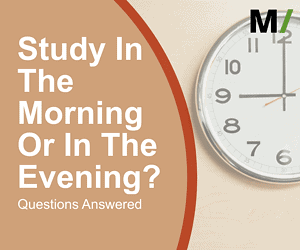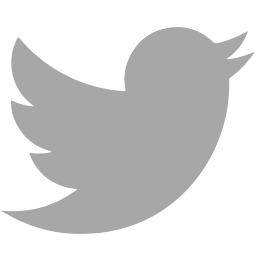Have you scheduled a fixed time to study?
Do you study first thing in the morning?
Or is your studying taking place in the evening?

Is studying perhaps an activity that you do after everything is done in and around the house?
When Most People Study
Most people study when they have time.
This could be because they have a full-time jobs and a family. To make sure these all get enough attention, the studying part is often the last thing they can do.
They may study in the evening or early in the morning. They are people who like to study during the week while others prefer studying on a Sunday morning.
The students who have the clearest goal about why they study have a fixed time to study. Most of them have a daily routine. Do you have a schedule or routine?

Studying takes a lot of energy for most people. I often compare studying with running. When you are starting out with running you feel tired, and have muscle pain. It is perhaps not difficult. It is more different from what you normally do. This change can hurt.
After a while, you get better at it. You start to enjoy running! You find it relaxing. You may even miss it when you skip a day!
The same applies to studying.
When you start out studying it probably feels uncomfortable for you. You have to put your attention to a book (or video class). You take notes and try to understand what you read. You memorize information. You may even prepare for an exam (the final race!!!).
But when should you be doing what?
When do you read, outline, or memorize?
For some people, it depends on how they feel during the day. Fortunately, most people follow the same routines each day. This gives them the same energy levels as well. Let’s use this knowledge!
You may start out feeling energized and having a clear head at the beginning of the day. Later during the day, your energy levels may be lower. In the evening you feel tired or your head is filled with thoughts.
It could be the other way around and you feel stronger during the evenings.
Make sure you identify when you feel is the best time to study (want to learn how to do this, let me know)
- Identify when you could best be reading
- Know when you should be outlining or summarizing your information
- What is the best time to memorize?
- At what time do you put your study ideas into practice?
The beauty of having a routine is that when you follow your routine, your brain expects to take care of it. You are no longer dependent on “feeling you have to study”. You just do it!
The Study Routine
When you identify your best time to study, you can create a schedule to study faster and better.

This schedule can, of course, be a simple 4 step list telling you this:
- Read for 20 minutes and highlight important sections
- Summarize 10 minutes based on highlights using a mind map (or visual map)
- Study for 15 minutes the notes and relate to current knowledge
- Memorize (10 minutes) important ideas and use my notes or do assignments (20 minutes)
(Total time of this routine is about 75 minutes)
Next thing is that you schedule this routine every weekday (yes, you can take the weekends off).
As you now probably understand, the best time for activities is depending on your brain. When your brain is clear, you can take better care of your study materials.
Starting out with studying is (again) like running.
In the beginning, you probably are not able to study for one hour straight. You may have to study in blocks or 15 or 30 minutes. Gradually, your “study muscle” will get stronger. You are able to study for longer periods of time.
You Now Have A Schedule For Studying
The moment you have your schedule, you should be testing if this is good for you.
Try it out a couple of times. Find out if you have to schedule more time for reading or mind mapping. See what is best for you.
Also, be flexible in your approach. You don’t need to do everything in one sitting. If you feel it is better to read in the morning and memorize in the afternoon… do that!
You have to go through your materials. It is your responsibility. You can probably skip a study session today, maybe even tomorrow. But do this for one week, and you are running one week behind the rest and you may not have to be able to catch up!
Conclusion:
Your brain has certain times during the day that it is best suited to do different tasks. It might be that in the morning you can read better. In the evening you could be better at summarizing your notes.
Depending on your own brain activity, you have to schedule your own study times.
It may feel difficult to do all that studying on your own. Learning different tactics to make studying easier takes time. Think about speed reading, practical mind mapping, and memory tactics. Especially when you are doing it all alone from a book or website.
That is why I created the `Studying Made Easy.
For a small investment, I become your study buddy. You learn how to study efficiently. You learn brain-friendly study tactics and time management strategies.
I am your accountability partner. Look at me as your personal mentor for studying smarter.
Let me know if you have any questions about “when to study” or the Study Buddy Coaching. I look forward to hearing from you about what you did with this information!


